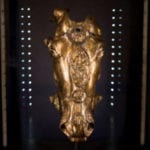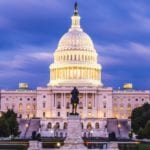 History
History  History
History  Weird Stuff
Weird Stuff 10 Wacky Conspiracy Theories You Will Need to Sit Down For
 Movies and TV
Movies and TV 10 Weird Ways That TV Shows Were Censored
 Our World
Our World 10 Places with Geological Features That Shouldn’t Exist
 Crime
Crime 10 Dark Details of the “Bodies in the Barrels” Murders
 Animals
Animals The Animal Kingdom’s 10 Greatest Dance Moves
 Movies and TV
Movies and TV 10 Box Office Bombs That We Should Have Predicted in 2025
 History
History 10 Extreme Laws That Tried to Engineer Society
 History
History 10 “Modern” Problems with Surprising Historical Analogs
 Health
Health 10 Everyday Activities That Secretly Alter Consciousness
 History
History 10 Dirty Government Secrets Revealed by Declassified Files
 Weird Stuff
Weird Stuff 10 Wacky Conspiracy Theories You Will Need to Sit Down For
 Movies and TV
Movies and TV 10 Weird Ways That TV Shows Were Censored
Who's Behind Listverse?

Jamie Frater
Head Editor
Jamie founded Listverse due to an insatiable desire to share fascinating, obscure, and bizarre facts. He has been a guest speaker on numerous national radio and television stations and is a five time published author.
More About Us Our World
Our World 10 Places with Geological Features That Shouldn’t Exist
 Crime
Crime 10 Dark Details of the “Bodies in the Barrels” Murders
 Animals
Animals The Animal Kingdom’s 10 Greatest Dance Moves
 Movies and TV
Movies and TV 10 Box Office Bombs That We Should Have Predicted in 2025
 History
History 10 Extreme Laws That Tried to Engineer Society
 History
History 10 “Modern” Problems with Surprising Historical Analogs
 Health
Health 10 Everyday Activities That Secretly Alter Consciousness
10 Surprising Facts About Nelson Mandela
Nelson Mandela was one of the true giants of 20th-century politics. Not only was he South Africa’s most popular president, he was instrumental in ending apartheid, fighting AIDS in Africa, and promoting global peace. However, he was also human, and that humanity led to a number of decisions at odds with our Western image of him. To honor his passing, here are 10 surprising facts about one of Africa’s greatest-ever leaders.
10He Hated His Public Image
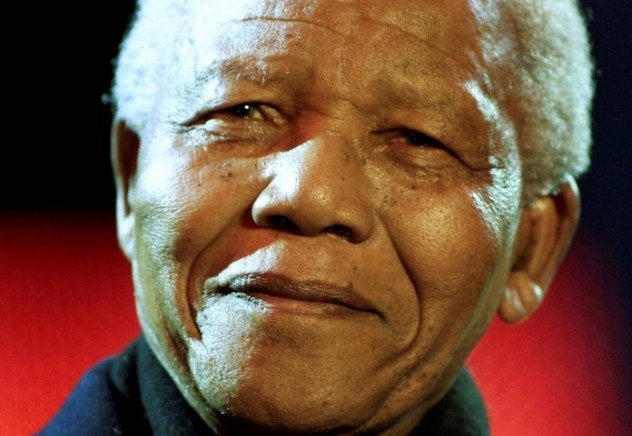
When Mandela was first elected president of South Africa, a local newspaper ran a quote of his in front-page bold type: “I’M NOT MESSIAH.” While Westerners picture him as a saint-like figure, Mandela was, in his own words, just “an ordinary man who had become leader because of extraordinary circumstances.” Well, what of it? Most politicians practice false modesty. Heck, 90 percent of all US election campaigns are run on it.
But Mandela wasn’t farting about: by all accounts, he hated his popular image. He was human, had made mistakes, and knew he wasn’t the angelic deity the world wanted him to be. And that’s important, because it makes his story all the more amazing: here was a regular joe who stood up for what he believed in and changed the world. Now, how much more inspiring is that than some sort of half-baked messiah storyline?
9He Was A Communist
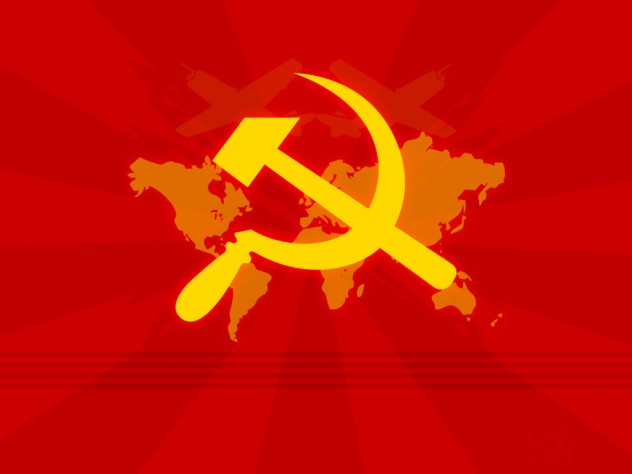
This one needs some clarifying. For starters, the South African Communist Party of the ’50s and ’60s stood in direct opposition to the establishment—the same establishment that was busy making life terrible for millions of black citizens. So it’s not hard to see why someone who was both poor and black might be attracted to it. Second, there’s quite a lot to suggest Mandela was more interested in learning resistance techniques than turning South Africa into a Marxist utopia.
But the evidence still suggests he was once an active member and later hid this to gain American support. And it’s lucky he did—in a confrontation between a racist regime and a former communist, there’s every chance the West would’ve just washed their hands of the whole thing and had done with it.
8He Was A Womanizer
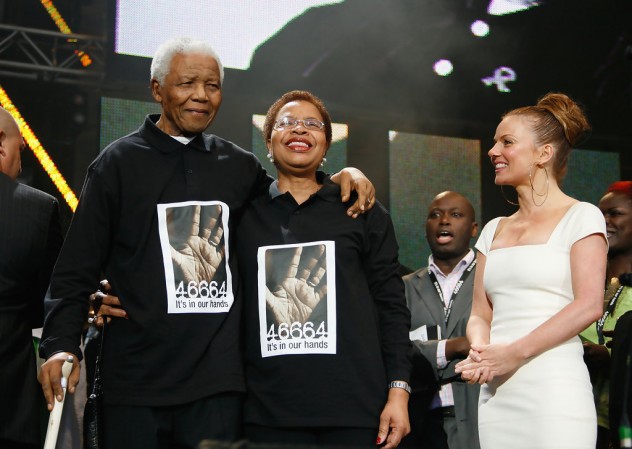
Just as it is with your own parents, it’s hard to imagine that cuddly old Mandela was ever a sexual being. But according to his biographers, the man was more than just a sexual being—he was the Casanova of 1940s South Africa. The book Young Mandela by David James Smith paints a portrait of him as an energetic, charismatic, and dashing guy—equal parts James Dean and Che Guevara.
It’s said women “inevitably . . . fell at his feet,” and he managed to carry on dozens of affairs at any one time. The book isn’t a simple hatchet job either; Smith had the support of the Nelson Mandela Foundation throughout. As mentioned above, Mandela wanted the world to be aware of his failings, though in this case, that “failing” seemed to mostly consist of being awesome.
7His Ex-Wife Was Terrifying
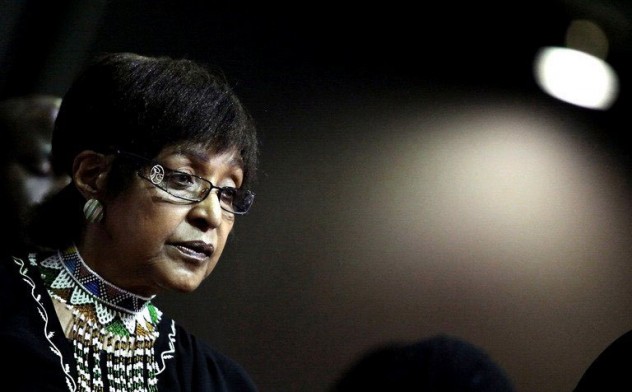
Despite his reputation as a ladykiller, Mandela did settle down with three different women in his life. While his first and third wives seem like ordinary, decent women, his second, Winnie Mandela, was the female equivalent of Tony Soprano. In 1991, she was convicted of abducting and murdering a 14-year-old police informant and given a six-year suspended sentence.
Over the years, she also faced accusations of beating, torturing, and “disappearing” whomever she felt stood in the way of her then-husband’s cause, usually on the flimsiest of evidence. Throughout her time in the ANC, she advocated the use of “necklaces” (execution by putting a burning tire around the neck of suspected traitors), ordered murders, took part in violent interrogations, and set up her own secret police. If that wasn’t enough, she is now once again embroiled in a murder investigation, this time for the execution of two ANC spies in 1988.
6He Personally Helped AIDS Patients

One of the few big criticisms that can be leveled at Mandela is his slow response to the AIDS crisis. It wasn’t until after he stepped down from the presidency that he began to campaign in earnest—by which point the new leader, Thabo Mbeki, was busy doing all he could to stop effective legislation. Sounds like a failure, right? Well, think again. According to Bill Clinton, whose foundation spends millions fighting AIDS, Mandela was so determined to make a difference that he sent personal checks to sufferers to pay for treatment. Since South Africa has the biggest number of infected people anywhere on Earth, his efforts were like trying to swallow the ocean. Yet still he tried—even in the face of a hopeless pandemic, he tried. In other words, it wasn’t just in politics that he was awesome.
5He Was Friends With Gaddafi
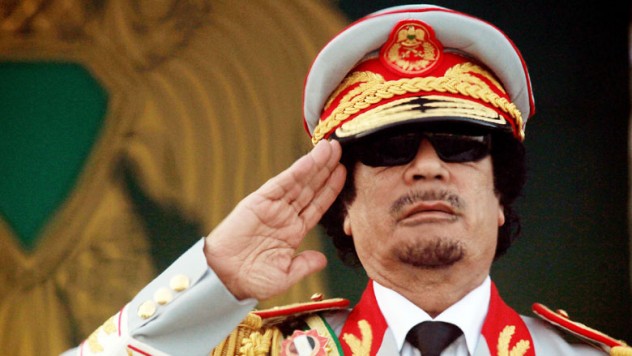
Of all the unpleasant tyrants in the world, Muammar Gaddafi could try out for least pleasant. But he had one friend in the international community that everyone was totally cool with: Nelson Mandela.
Again, this entry needs some context. It’s not as if Mandela got out the latest edition of World’s Worst Dictators and decided to cozy up with one of them. While Mandela’s ANC was still outlawed, Gaddafi was one of the few people belligerent enough to support them, supplying arms and money at a time when they needed it most. Never one to forget a friend, Mandela repaid Gaddafi by visiting him in 1994 while it was still technically illegal, naming his grandson after him and supporting his regime right until the end. Again, to us here in the West, it looks like lunacy. But Mandela once claimed apartheid couldn’t have ended without Libyan support, so maybe this should be seen more as loyalty than anything else.
4He May Have Been A Wife Beater
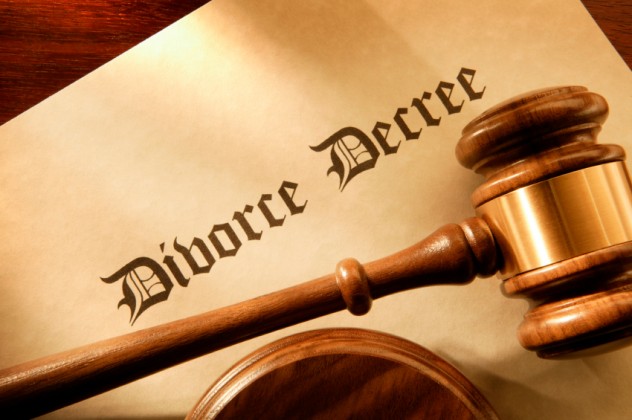
There’s no easy way to go about this one. When Mandela divorced his first wife in the late ’50s, she claimed he had assaulted and threatened her. While she eventually withdrew the claim, it was left to stand between May 1956 and November the same year. Also, it’s worth noting the case never came to court, meaning no judge or jury finally ruled on the truth of the allegation. Now, it’s probably impossible to say for certain whether there was any truth to Evelyn’s claim that Mandela had assaulted her. However, the court record is there, and the fact remains that she made the claim as part of a divorce suit. So, was it a case of Evelyn making up claims to justify the divorce, or did Young(er) Mandela have the sort of temper issues that we really don’t want our heroes to have? Who can say? But it remains a (possible) smudge on the life of a great man.
3He Founded The ANC Military Wing . . .

While most of us are aware the world once saw Mandela as a terrorist, we’re probably not clear on how deep that goes. Put simply, if it wasn’t for Mandela, there wouldn’t have been a military wing of the ANC. Since it was the military wing that would later target civilians with a bomb deadlier than the recent Boston attacks, this is actually a big deal. Bear in mind, the military wing was founded in response to the Sharpeville Massacre, when armed police opened fire on protestors, killing 69. Nonetheless, at least two of the ANC’s attacks targeted innocent civilians, with fatal results. And such an idiotic action should never be forgiven.
2. . . But Opposed Violence Toward Civilians
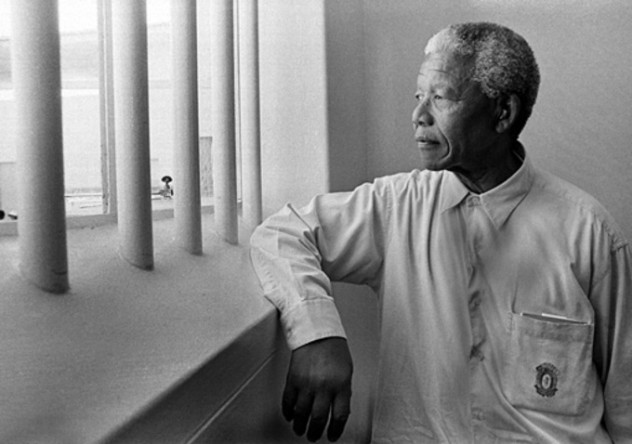
On the other hand, those who know Mandela as a terrorist might be surprised to learn he never harmed a single person. Not only that, he steadfastly opposed the MK (military wing of the ANC) ever targeting any human beings, let alone non-military targets. By the time Mandela was thrown in prison, the MK had gotten no further than blowing up electricity substations and railway tracks, leading to approximately zero deaths. It was only after Mandela was jailed that they stepped up to targeting military personnel, and only in the 1980s that they branched out into civilian murder.
In every bloodthirsty campaign, Mandela was either uninvolved or actively disapproving. In 1977, the ANC (then a terrorist organisation) even signed up to the Geneva Convention, committing themselves to avoiding innocent bloodshed. The fact its acting leaders changed this stance in 1985 is no fault of Mandela’s. Put simply, while he may have been responsible for the creation of the MK, he was no more at fault for their actions than, say, Marx was for Stalin’s.
1He Loved The Spice Girls
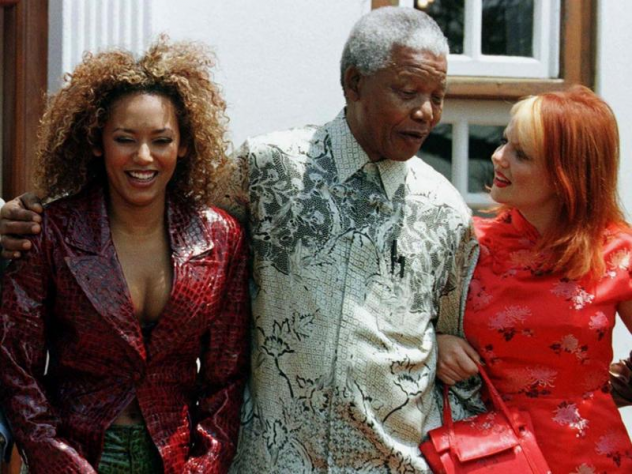
For a man who famously had a fantastic sense of humor, the passing of Nelson Mandela has been marked with a distinctly somber air. So let’s remedy that with this final entry. According to several sources, not to mention the man himself, Nelson Mandela was—hilariously, fantastically, brilliantly—a committed Spice Girls fan. For those of you who slept through the 1990’s, the Spice Girls were a barnstorming pop band who stood up for feminism by being loud and obnoxious and everything we expect a crappy British pop band to be. But they were successful enough to meet Nelson Mandela in 1997, where he referred to them as his “heroes” and said it was one of the most emotional moments of his life. This is no joke. According to the BBC, Mandela was more awed meeting a girl group from North London than meeting Bill Clinton, Tony Blair, and the UN Secretary-General combined.
And when you think about it, what could be more fitting? Here was a man who accomplished extraordinary things, but was never really more than ordinary—one of the greatest statesmen the world has ever seen, yet still just a shy fanboy meeting his favorite band. Legend, saint, martyr . . . maybe. But more than anything, Nelson Mandela was just an (awesome) regular guy. And that should be his legacy.
